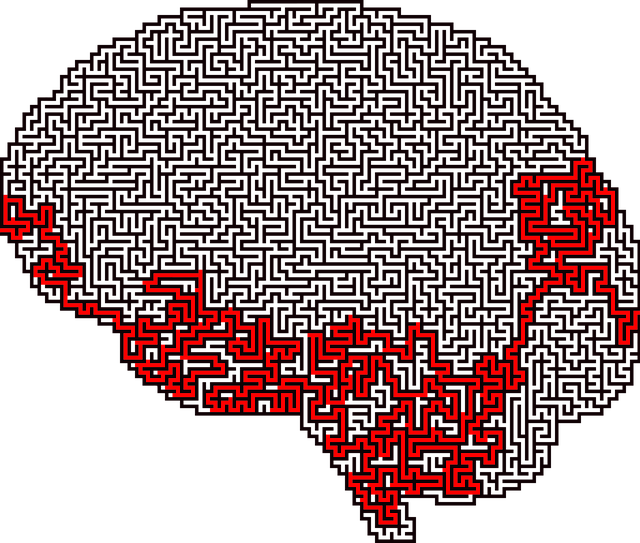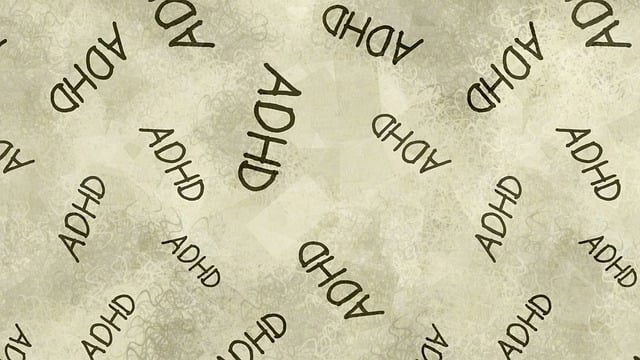Colorado Springs is transforming mental health care through a comprehensive strategy for diagnosing and treating Conduct Disorder (CD). This approach involves public education campaigns to reduce stigma, policy advocacy for refined diagnostic criteria, and specialized training for healthcare professionals. By emphasizing empathy and cultural sensitivity, the city ensures early identification of CD symptoms. Advanced assessment tools, digital therapy platforms, and community partnerships enhance diagnosis accuracy. Colorado Springs' patient-centered care model personalizes treatments, improving outcomes for individuals with CD, while its innovative practices set a standard for mental health services, particularly in Conduct Disorder Therapy.
Mental illness diagnosis accuracy is paramount for effective treatment. This article explores efforts to improve diagnosises, focusing on conduct disorder in Colorado Springs. We delve into the symptoms and challenges unique to this disorder, highlighting the crucial role of professional training and education. Advanced assessment tools and community support networks are also examined, along with patient-centered care approaches that offer personalized therapy for better outcomes, specifically targeting Colorado Springs Conduct Disorder Therapy.
- Understanding Conduct Disorder: Symptoms and Challenges in Diagnosis
- The Role of Professional Training and Education in Colorado Springs
- Advanced Assessment Tools and Techniques for Accurate Mental Health Diagnoses
- Community Support and Collaboration: A Networked Approach to Care
- Patient-Centered Care: Personalized Therapy for Better Outcomes
Understanding Conduct Disorder: Symptoms and Challenges in Diagnosis

Conduct Disorder (CD) is a serious mental health condition characterized by persistent and repetitive behaviors in which the rights of others or societal norms are violated. Symptoms can include aggressive behavior, non-compliance with rules, and destructive actions towards people or property. Diagnosing CD accurately is challenging due to its overlap with other disorders and complex presentation. Often, individuals with CD may exhibit symptoms similar to attention-deficit/hyperactivity disorder (ADHD), oppositional defiant disorder (ODD), or even mood disorders, making differentiation crucial for effective treatment planning.
In Colorado Springs, efforts to improve diagnosis accuracy involve a multi-faceted approach. Public Awareness Campaigns Development plays a vital role in educating the community about CD, fostering empathy, and reducing stigma. Mental Health Policy Analysis and Advocacy focuses on refining diagnostic criteria and guidelines, ensuring healthcare professionals are well-equipped to handle complex cases. Additionally, strategies that emphasize building empathy among caregivers, educators, and medical professionals can significantly enhance early identification and intervention, ultimately improving treatment outcomes for individuals struggling with Conduct Disorder.
The Role of Professional Training and Education in Colorado Springs

In Colorado Springs, efforts to enhance mental illness diagnosis accuracy are significantly aided by robust professional training and education initiatives. These programs equip healthcare professionals with advanced skills in assessing complex symptoms, especially in cases like Conduct Disorder, ensuring more precise diagnoses. The focus on continuous learning includes workshops and seminars that delve into the latest research, clinical practices, and Cultural Sensitivity in Mental Healthcare Practice. This comprehensive approach aims to reduce the stigma associated with mental illness (Mental Illness Stigma Reduction Efforts) by fostering an environment where healthcare providers can better understand and address diverse patient needs.
Moreover, these educational efforts emphasize coping skills development, empowering both patients and healthcare workers to navigate challenges more effectively. By integrating cultural sensitivity into their practices, therapists in Colorado Springs can provide tailored support, recognizing that mental health experiences vary across different communities. This personalized approach not only improves diagnostic accuracy but also enhances the overall quality of care, making Colorado Springs a leader in innovative mental health services.
Advanced Assessment Tools and Techniques for Accurate Mental Health Diagnoses

Mental health professionals are continually striving to enhance the accuracy of diagnoses, and advanced assessment tools are playing a pivotal role in this effort. With methods such as structured clinical interviews, psychometric assessments, and observation scales, practitioners can now gather more detailed and objective information about a patient’s symptoms, functioning, and history. These techniques not only improve diagnostic validity but also aid in personalizing treatment plans for individuals dealing with conditions like conduct disorder, prevalent in Colorado Springs therapy settings.
The integration of technology has further revolutionized assessment practices. Digital platforms offering remote evaluations and online therapy have increased accessibility to mental wellness services, including a growing Mental Wellness Podcast Series Production focused on various aspects of mental health. These innovations ensure that patients receive timely interventions, while advanced analytics enable professionals to make more nuanced diagnoses, ultimately improving outcomes for those seeking anxiety relief or trauma support services.
Community Support and Collaboration: A Networked Approach to Care

In an effort to enhance mental illness diagnosis accuracy, community support and collaboration play a pivotal role in creating a networked approach to care. Colorado Springs Conduct Disorder Therapy, for instance, benefits from a holistic strategy that involves not just healthcare professionals but also community organizations and peers. By fostering partnerships with local entities focusing on self-esteem improvement and stress management workshops organization, the community can offer comprehensive support systems that complement traditional therapy. This collaborative effort ensures individuals struggling with mental health issues receive well-rounded care tailored to their unique needs.
Through these collaborative initiatives, such as Community Outreach Program Implementation, residents gain access to resources beyond clinical settings. Self-esteem improvement programs and stress management workshops empower individuals to take an active role in their mental wellness journey. This community-driven approach not only enhances diagnosis accuracy by providing a broader understanding of the individual’s context but also promotes long-term recovery and resilience, ensuring a healthier and more supportive environment for all.
Patient-Centered Care: Personalized Therapy for Better Outcomes

In the pursuit of enhancing mental illness diagnosis accuracy, a patient-centered care approach is transforming treatment outcomes. This personalized therapy model recognizes that each individual’s experience with mental health conditions is unique, requiring tailored interventions for optimal results. By focusing on the patient’s needs and preferences, healthcare providers in Colorado Springs can offer more effective Conduct Disorder Therapy. This method not only improves diagnosis accuracy but also boosts confidence among both patients and mental health professionals.
Implementing patient-centered care involves collaborative decision-making, where therapists work closely with clients to set treatment goals and choose evidence-based strategies aligned with their specific needs. This approach also integrates emotional well-being promotion techniques, addressing not just symptoms but the underlying factors contributing to mental health challenges. Moreover, it enhances risk assessment capabilities among mental health professionals, ensuring they can better predict and manage potential risks associated with these disorders.
In Colorado Springs, ongoing efforts to enhance mental illness diagnosis accuracy, particularly in Conduct Disorder, are reshaping care. By prioritizing professional training, adopting advanced assessment tools, fostering community support, and emphasizing patient-centered care, the city is moving towards more precise and effective treatment. These strategies not only improve diagnosis reliability but also ensure personalized therapy for Colorado Springs Conduct Disorder patients, ultimately leading to better outcomes and a brighter future for those seeking mental health support.












